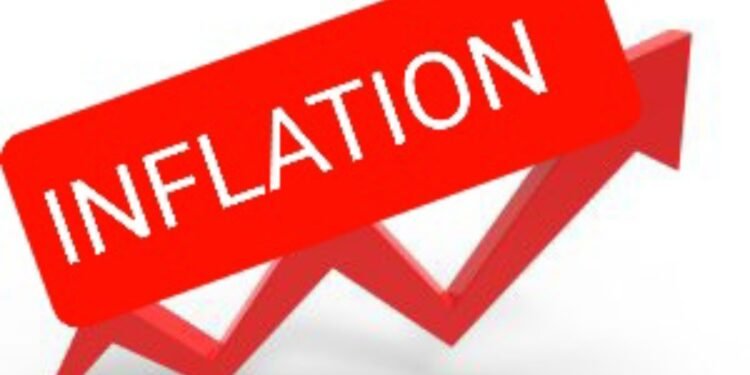The Consumer Price Index (CPI) which measures inflation surged to 19.64% in July from 18.60% in June, the National Bureau of Statistics said in a report on Monday.
This is the highest inflation rate recorded since September 2005. July inflation rate was 2.27% points higher compared to the 17.38% recorded in July 2021.
Here are Nigeria’s inflation rates since this year:
- January: 15.60%
- February: 15.7%
- March: 15. 92%
- April: 16.82%
- May: 17.71%
- June: 18.60%
- July: 19.64%
On a month-on-month basis, the Headline inflation rate in July 2022 was 1.817 %.
Read also: Ghana inflation rises to 31.7% in July, highest since 2003
The food inflation rate in July 2022 was 22.02 % on a year-on-year basis; which was 0.99% higher compared to the rate recorded in July 2021 (21.03%). This rise in food inflation was caused by increases in prices of Bread and cereals, Food products, Potatoes, yam and other tubers, meat, fish, oil, and fat, NBS said in the report.
On a month-on-month basis, the food inflation rate in July was 2.04%, this was a 0.01% insignificant decline compared to the rate recorded in June 2022 (2.05%).
According to the report, the ‘’All items less farm produce’’ or Core inflation, which excludes the prices of volatile agricultural produce stood at 16.26% in July 2022 on a year-on-year basis; up by 2.54% when compared to 13.72% recorded in July 2021.
On a month-on-month basis, the core inflation rate was 1.75% in July 2022. This was up by 0.20% when compared to 1.56% recorded in June 2022.
NBS said the highest increases were recorded in prices of Gas, Liquid fuel, Solid fuel, Passenger transport by road, Passenger transport by Air, Garments, Cleaning, Repair and Hire of clothing.
In July 2022, all items’ inflation rate on a year-on-year basis was highest in Akwa Ibom (22.88%), Ebonyi (22.51%), Kogi (22.08%), while Jigawa (16.62%), Kaduna (17.04%) and Borno (18.04%) recorded the slowest rise in headline Year-on-Year inflation.
Whereas, food inflation on a year-on-year basis was highest in Kwara (29.28%), Akwa Ibom (27.22%), and Kogi (26.08%), while Kaduna (17.16%), Jigawa (17.46%) and Anambra (19.25%) recorded the slowest rise on year-on-year food inflation.
Ifunanya Ikueze is an Engineer, Safety Professional, Writer, Investor, Entrepreneur and Educator.




















































